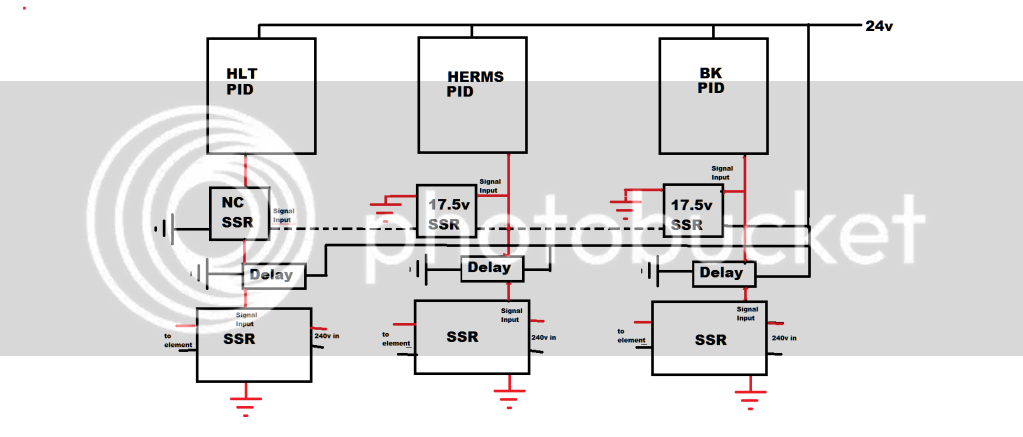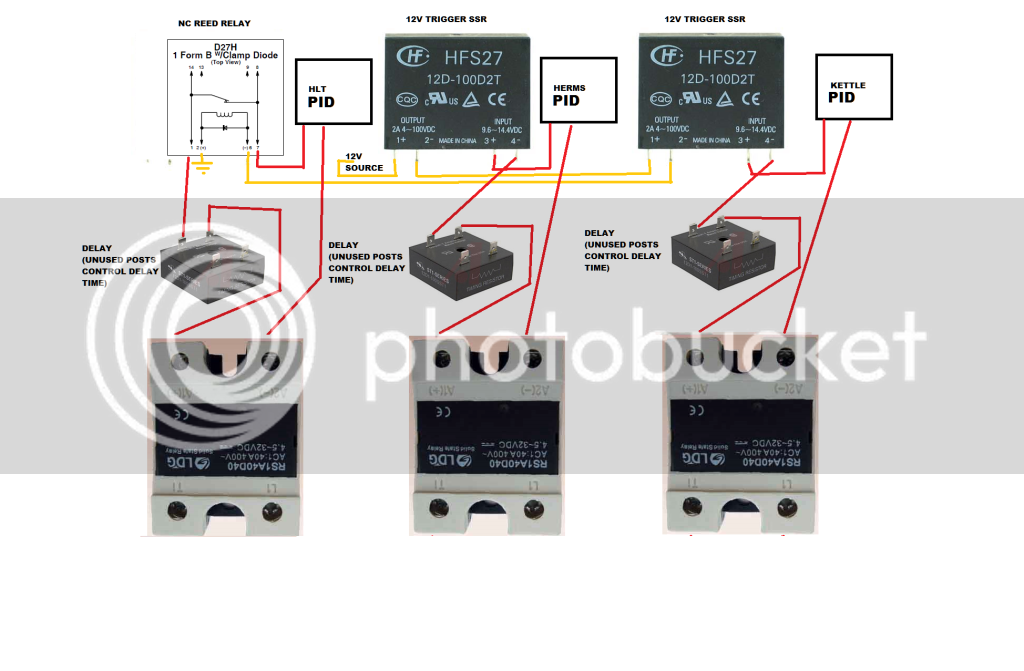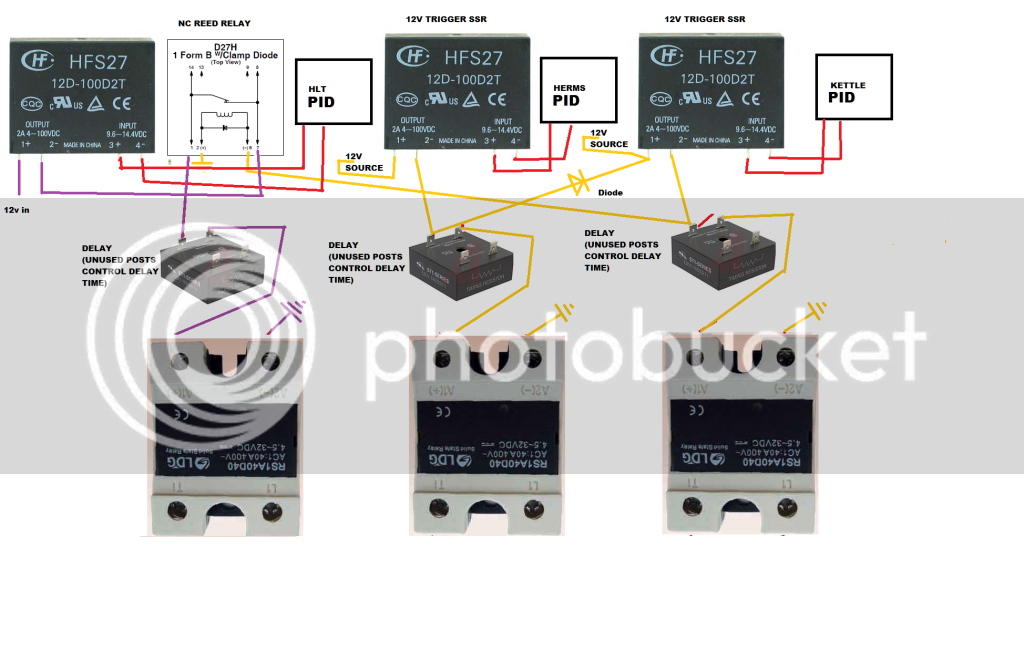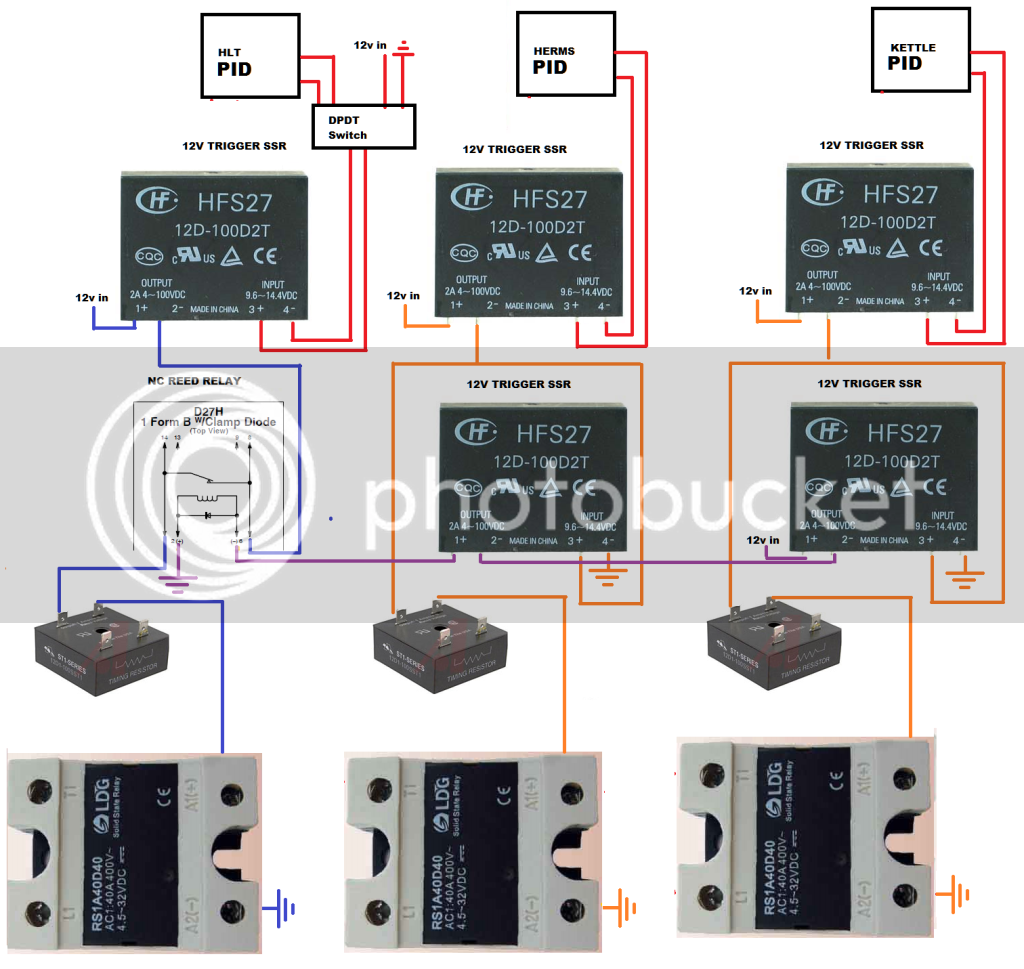I fear you are headed down a bunny trail. What is the timing on the delay? If it's anything more than .05 sec you will miss a lot of cycles (.1 sec delay in series with a .5sec PWM cycle will give you a 20% - 80% capability, .05 = 10%-90%).
What you are really looking for (I believe) is a NAND gate connected to the output of the Kettle and HERMS PID outputs with it's output running to an AND Gate along with the output from the HLT PID. Run all of those using a 5-9V Bus and, depending on specs you may, or may not need any buffer to drive the SSRs. If you feel it's absolutely necessary to introduce a time delay, I would just insert a MOSFET buffer, and drive a small RC circuit in parallel with the SSR. The resistor-capacitor circuit will give you an on-delay, but the low impedance of the SSR will give an instant off.
But truthfully, it's all fun and games until someone gets hurt, so unless every word I just typed makes perfect and total sense, please, for the love of god don't try any of this. 220VAC 50A will fry you and every poor soul who tries to pull your convulsing body away from rig if you have even the slightest mistake. You wont even have time to say oops.



















































![Craft A Brew - Safale BE-256 Yeast - Fermentis - Belgian Ale Dry Yeast - For Belgian & Strong Ales - Ingredients for Home Brewing - Beer Making Supplies - [3 Pack]](https://m.media-amazon.com/images/I/51bcKEwQmWL._SL500_.jpg)









